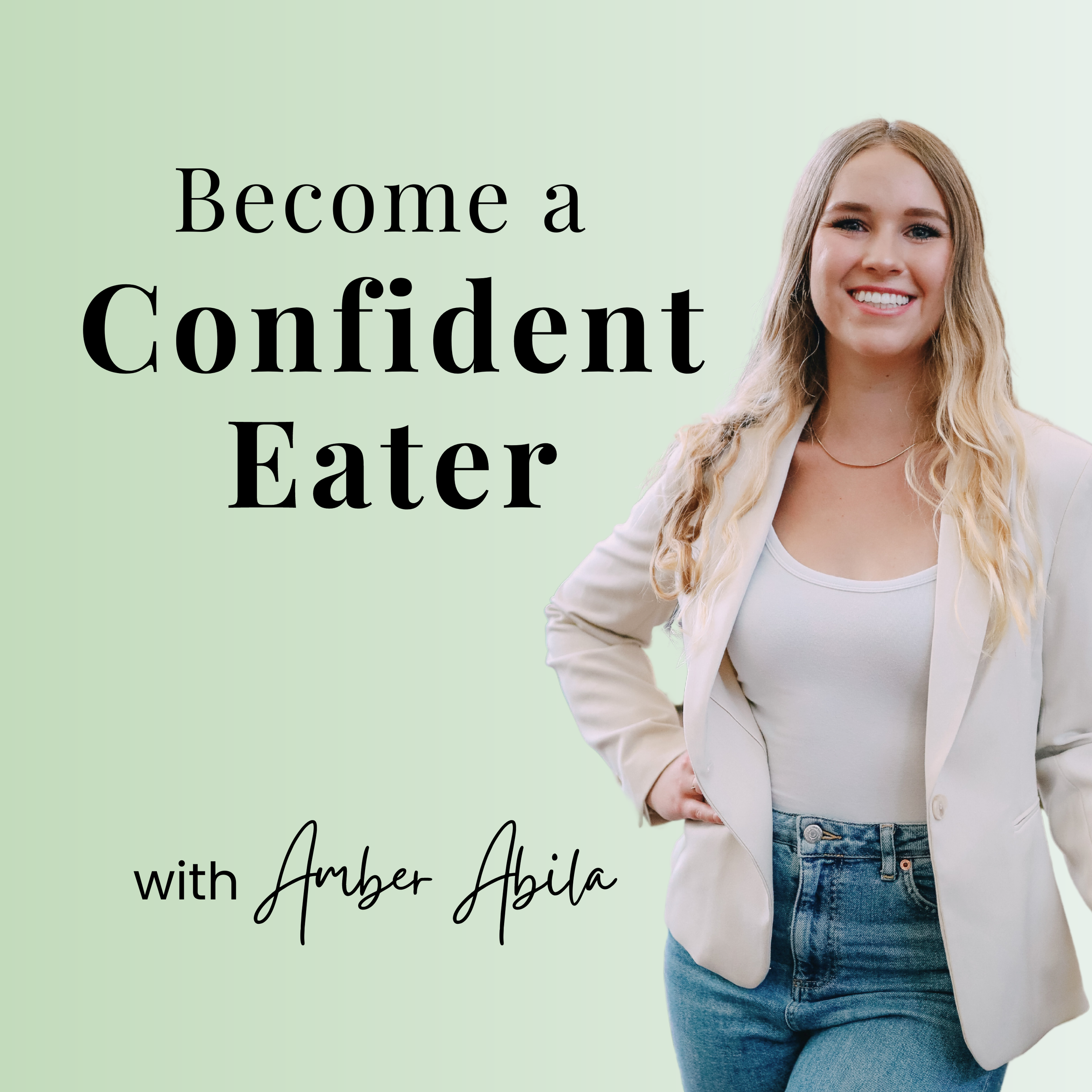Ep 64- She Tried Weight Loss Medications, Gastric Bypass, and Therapy- Here’s How Lauren Finally Stopped Binge Eating
May 01, 2025
Today I chat with Confident Eater Program client, Lauren, who had truly tried EVERYTHING to stop binge eating.
Bariatric surgery, outpatient therapy, having her husband hide food, and every diet under the sun from cabbage soup to whole 30.
Lauren opens up about her life changing experience combining the CE Program with GLP-1 medications (Wegovy) and the exact mindset shifts that allowed her to stop binge eating for good.
You’ll learn:
Why traditional therapy didn’t work for Lauren
The tactics she used to reconnect with her hunger & fullness
How she made peace with tiramisu (yes, it’s still in her freezer!)
Why accountability changed everything for her
What made the Confident Eater Program different than anything she’s ever tried
Whether you're curious about GLP-1 medications or just feel hopeless about food right now, Lauren’s story is a powerful reminder that it’s never too late to heal your relationship with food.
Lauren had tried everything to fix her relationship with food. Bariatric surgery. Outpatient therapy four nights a week. Having her husband lock food away. Every diet from cabbage soup to Whole30. Nothing touched the constant food noise, the planned binges on the drive home, or the shame that followed.
Then she paired the Confident Eater Program with a GLP-1 medication and, for the first time in years, things clicked.
“I just wanted room in my brain for something else”
Before we started, Lauren described her relationship with food as miserable. She thought about eating all day, hid food, and binged most nights. Therapy helped her feel “safe” while she was on Zoom with a group, but she didn’t learn what to do in her real kitchen, at real mealtimes, with real urges. Diets only made life smaller and more rigid.
Her goal sounded simple: she wanted a quiet mind, to eat like a normal person, and to stop the nightly spiral.
Why the GLP-1 piece was helpful, but not the whole answer
Lauren began Wegovy around the same time she joined the program. The medication muted the constant “eat now” drumbeat, which gave her just enough space to practice new skills. We treated the med as a tool, not a fix. The work stayed the same: listen to hunger and fullness, neutralize “good” and “bad” foods, and retrain the brain’s urge pathways.
Because weight loss that’s very rapid can come with downsides, we focused on building a sturdy foundation. Think bricks and mortar, not a paper house. Slow, sane progress plus mindset work meant she didn’t have to rely on locked cupboards anymore. She learned how to be around food.
What changed day to day
We made practical tweaks that seem small but change everything:
Meals got plated and eaten seated, without a phone.
She learned non-stomach cues for hunger after years of not feeling clear signals post-surgery, like energy dips, headaches, time since last meal and focus changes.
She added steady meals earlier in the day so evenings stopped swinging into “I deserve it” mode.
We reframed treats with abundance. Tiramisu moved from “now or never” to “I can enjoy a little now and more tomorrow.” There is still tiramisu in her freezer. She smiles about it.
Most importantly, she practiced the pause. Urges still pop up. Now she notices them, breathes, and chooses what she actually wants. That single beat between urge and action is where freedom lives.
Results Lauren can feel
She hasn’t binged in over four months. The food noise is quiet enough that she has space for the rest of her life. She can keep favorite foods at home without fear. She enjoys dessert when it truly sounds good and stops when she’s had enough, knowing she can have more another day.
She didn’t become a perfect eater. She became a peaceful one.
Thinking about meds, therapy, or “one more diet”?
Lauren’s take after trying it all: if you only change what goes on your plate, the problem shape-shifts. When you change how your brain relates to urges, hunger, fullness and emotions, the problem dissolves. Meds can be a tool. Mindset and skill-building make it last.
Ready to feel calm around food?
I help you retrain cravings, rebuild trust with hunger and fullness, and make trigger foods boring, so natural eating becomes your default.
Book a free consultation to see if the six-month Confident Eater Program is a fit for you. If you’re in the thick of it today, grab my Stop a Binge audio and keep it handy for your next wave of urges.
You don’t have to lock up the pantry. You can learn to trust yourself.
